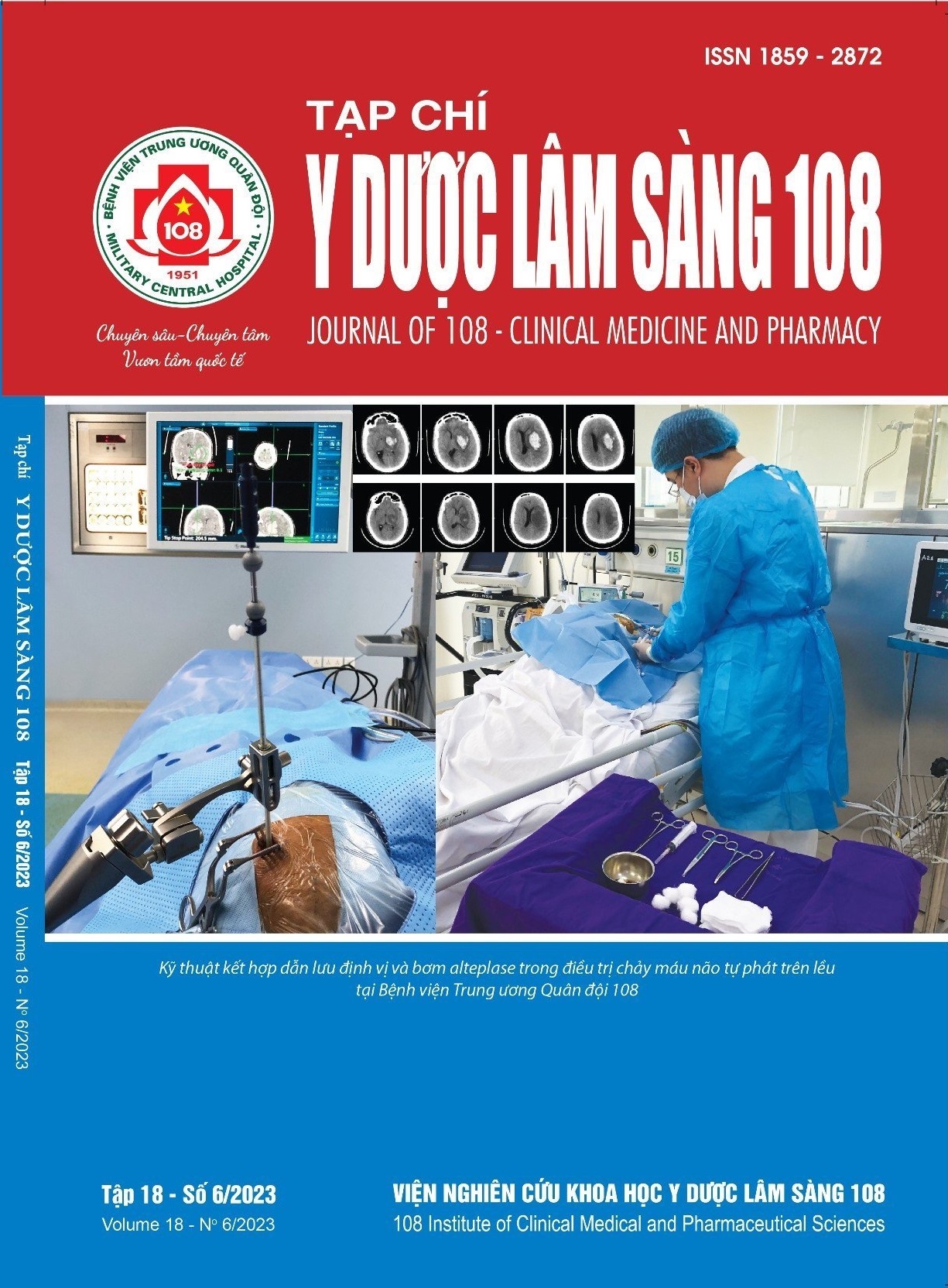Results of endoscopic septoplasty surgery by using NOSE and VAS scores
Main Article Content
Keywords
Abstract
Objective: To evaluate the effectiveness of endoscopic septoplasty surgery by using the NOSE and VAS scores. Subject and method: A case-by-case descriptive study with intervention on 63 patients had endoscopic septoplasty surgery at 103 Military Hospital from 5/2021 to 4/2023. Result: Mean age 37.6 ± 9.24; Deformity of the septum was mainly type III (accounting for 85.7%); 100% preoperatively had nasal congestion; The mean scores of NOSE and VAS before surgery were 14.53 and 7.56, after 3 months of surgery were 4.05 and 3.02, the change in score was statistically significant with p<0.001; Before surgery, the average percentage of NOSE and VAS scores were similar, after surgery, NOSE scores improved better than VAS. Conclusion: Both NOSE and VAS scores can be used to evaluate the outcome of endoscopic septoplasty surgery. However, the NOSE scale showed a better, more detailed assessment when used to measure nasal congestion compared with VAS.
Article Details
References
2. Shukla RH, Nemade SV, Shinde KJ (2020) Comparison of visual analogue scale (VAS) and the Nasal Obstruction Symptom Evaluation (NOSE) score in evaluation of post septoplasty patients. World Journal of Otorhinolaryngology-Head and Neck Surgery 6: 53-58.
3. Stewart MG, Witsell DL, Smith TL et al (2004) Development and validation of the nasal obstruc- tion symptom evaluation (NOSE) scale. Otolaryngol Head Neck Surg 130: 157-163.
4. Flynn D, van Schaik P, van Wersch A (2004) A comparison of multi-item Likert and Visual Analogue Scales for the assessment of transac- tionally defined coping function. Eur J Psychol Assess 20: 49-58.
5. Hong-Ryul Jin (2007) New description method and classification system for septal deviation. Journal of Rhinology 14(1): 27-31.
6. Nghiêm Đức Thuận, Chử Thị Hồng Ninh (2012) Đánh giá hiệu quả của phẫu thuật nội soi chỉnh hình vách ngăn mũi tại Khoa Tai Mũi Họng, Bệnh viện Quân y 103. Tạp chí Y Dược học Quân sự, số 3, tr. 85-88.
7. Trương Thanh Hiền (2022) Đánh giá kết quả phẫu thuật nội soi điều trị dị hình vách ngăn có điểm tiếp xúc tại Bệnh viện Tai mũi họng Cần Thơ. Tạp chí Y dược học Cần Thơ, số 52, tr. 1-8.
8. Thào Thị Thảo Nguyên (2022) Đánh giá kết quả phẫu thuật nội soi chỉnh hình vách ngăn điều trị bệnh viêm mũi xoang mạn tính có dị hình vách ngăn. Luận văn thạc sĩ y học, Học viện Quân y.
9. Dell'Aversana Orabona G, Romano A, Abbate V et al (2018) Effectiveness of endoscopic septoplasty in different types of nasal septal deformities: Our experience with NOSE evaluation. ACTA Otorhinolaryngologica Italica 38(4): 323-330.
10. Kahveci OK, Miman MC, Yucel A et al (2012) The efficiency of Nose Obstruction Symptom Evaluation (NOSE) scale on patients with nasal septal deviation. Auris Nasus Larynx 39(3): 275-279.
 ISSN: 1859 - 2872
ISSN: 1859 - 2872
